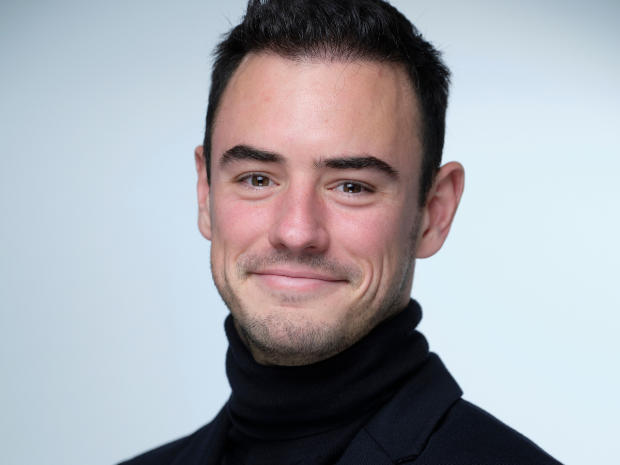
Meet our February Alum of the Month, Ed Healy. Ed has worked for L’Oreal for 11 years working across a variety of Sales and Marketing roles which have enabled him to manage 16 different P+Ls, ranging from start-ups to iconic beauty giants. He has successfully integrated big brand acquisitions and managed large brand portfolios. Ed has built a track record for being a strong negotiator and establishing successful long-standing commercial relationships with clients.
Tell us about your career journey since graduating from LSE.
I joined the L’Oreal graduate scheme on the commercial stream where you rotate across different divisions within the company. L’Oreal is made up of four divisions with 35+ brands. Following my year on the graduate scheme I went “Operational” in the Luxury Division where I spent seven years doing national account manager roles across three business units, one with Kiehls and Biotherm, the second with Lancome and the third with L’Oreal Designer Fragrances. In these commercial roles your job is to drive the retail of your brands, through visibility, launch activations, and promotions, and therefore winning market share, which at the same time then drives your turnover for the company. I was responsible for driving profitable growth and owning the P+Ls for retailers such as Boots, The Perfume Shop, and John Lewis.
After this, I then became a Sales and Marketing Director where I had full P+L responsibility for House 99 by David Beckham and Atelier Cologne. In this role I was not only responsible for the commercial strategy, for retailer distribution and commercial terms, visibility and support from the retailers, and driving retail and turnover, but also for really understanding the marketing competencies to set me up for future General Manager Roles. This included buying media, working with our Paris teams on the branding and localisation, visual merchandising, and consumer insights.
After those two years I have gone back to a purely commercial role as Commercial Director for L’Oreal Designer Fragrances managing a team of 40+ people across National Accounts as well as a field team.
How did your time at LSE influence your career journey?
LSE is an extremely multinational university where I was exposed to diverse cultures that I had never experienced previously. It really helped me to develop and understand how to work with people with very different points of view and overcome any friction or challenges this could cause. To thrive at L’Oreal, you must be able to work with many different stakeholders, all with different points of views, and be able to navigate this and influence others.
You have worked with L’Oreal for over 11 years. As Commercial Director, what does your day-to-day role look like?
Every Monday we start the week looking at last week’s retail; what were the results versus the competition and analysing any drivers or drainers that could have affected this. In conjunction with this we are also monitoring our turnover, how much stock the retailer has bought and if we are on target to land our month/quarter/year.
Tuesday consists of internal meetings presenting to senior management on the tracking of retail and turnover as well as meetings with other business units to discuss the holistic strategy of the LUXE division as we can often be more successful as a collective. The rest of the week is all about business planning and working on our strategy on how we are going to deliver market share growth as well as profit growth. This consists of forecasting retail and turnover, budgeting how we spend our investments, planning and negotiating with our retailers, working with other teams such as marketing to implement our strategy to name but a few things on the to do list!
What has been the biggest challenge in your career and what have you learned from it?
I am sure COVID-19 will be the answer to this kind of question for years to come! It has challenged me in many ways. How do you adapt your leadership skills? How do you adapt to drive retail and turnover in extremely difficult marketing conditions? How quickly can you shift your commercial strategy? How quickly can you understand the shift in consumer behaviour etc.
With over ten years of experience in Sales and Marketing across 16 luxury brands, you have vast experience across managing start-ups, big brand acquisitions, iconic beauty giants and large portfolio management. What is one piece of advice you would offer to those looking to follow a similar journey?
Always maximise the role you are currently in, learn as much as you can in your current position. There is no point looking to jump into another role until you have mastered your current one. When you are in a role, don’t have a narrow-minded attitude where you are only looking at what you’ve got to do. Understand what other people are doing, what are their roles, and how you can both help each other to drive strong results. Always be open to new opportunities, understand where you want to be in five to ten years and what the competencies and skills are that you will need to get there. Plan your journey to get there.
How has the luxury goods industry been affected by COVID-19 and what challenges do you foresee that lie ahead?
The luxury market has seen a huge shift in the weight of online business with Brick and Mortar closed for most key trading periods. Luxury was traditionally about an in-store experience, the touch, feel, smell, trial, environment of the shop. That is what separates it from the mass market. Luxury brands now need to challenge themselves on how they can recreate this luxury experience online. We have seen huge iconic department stores such as Debenhams closing. Consumers are shifting their purchases to online, and we need to adapt our distribution strategy to match where the consumer is going.